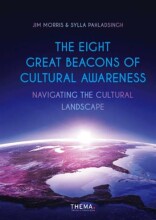Emotion in cultures
14 important questions on Emotion in cultures
What plays a significant role in whether a culture will outwardly choose to show any emotion or not?
Culture shapes how we ............................... About emotion.
When can we begin to learn how differently emotion is shown within each culture?
- Higher grades + faster learning
- Never study anything twice
- 100% sure, 100% understanding
Chinese children aged 1 or 2 years old will smile and cry ... Then American children of the same age.
Next to culture, what will also affect how we emotionally respond to situations?
If we take happiness, this will be expressed more internally by someone from an individualistic culture or a collectivistic culture?
Individualistic cultures will describe finding the source of emotions within themselves.
Somebody from ... Culture is more likely to express pride in what they have personally achieved, whereas people from ... cultures might see this as conceited or boastful.
2 collective
When talking about emotion, Western people tend to look at the mouth of people. Where do Japanese people look at?
Even between western Cultures (for example Germany and France) the expression of emotion and how thy use emotion can differ. Can you give an example of a difference when talking about buying cars?
For example: French people look more for a car that has a boot big enough to transport a complete barbeque. That it can take the whole family to a beautiful location to enjoy some quality time together.
Can you give some examples on how Japanese people communicate nonverbally?
In which culture can drinking with colleagues and managers be a tactical and safe way to tell people how they really feel about things and why?
If emotions are questioned or the result of an emotional outburst threatens to escalate they can say that it was not them talking, but the alcohol.
Where does nomunication stand for?
(Often in Japan it is not what is said, but where it is said. In a meeting between two or more people , what is said means something different if it is said in the pub, for example.)
What does the word nemawashi from Japan mean?
What are the 4 takeaways from emotions in culture?
- Culture affects how people experience and display emotion.
- If emotional signals form someone seem inappropriate, check. You may be misinterpreting their behaviour based on your cultural values concerning emotion.
- A multicultural team will express and use emotion differently. Be willing to give space to those who need to outwardly express emotion and respect those who internalise emotion. The emotion is always there, just manifested differently.
- Say yes to an evening of karaoke. It could be a Japanese colleague's attempt to tell you how he/she really feels!
The question on the page originate from the summary of the following study material:
- A unique study and practice tool
- Never study anything twice again
- Get the grades you hope for
- 100% sure, 100% understanding































